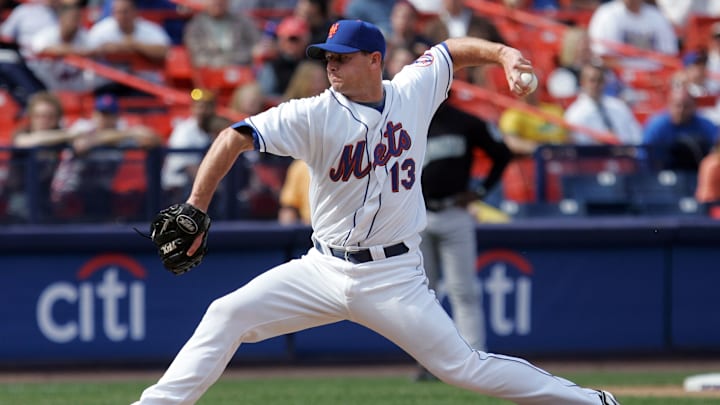As he makes his seventh appearance on the Baseball Hall of Fame ballot this winter, Billy Wagner’s case for induction is finally gaining as much steam as his fastball would approaching home plate. It would be overdue recognition for a career that, at least with the New York Mets, is too often cast as a failure rather than one ahead of its time.
Wagner was already one of baseball’s most dominant closers prior to signing a four-year contract with the Mets in November 2005. Fresh off their first winning season in four years with a strong young core emerging, the Mets were poised to make a move towards championship contention in 2006.
Along with adding key bats like Carlos Delgado and Paul Lo Duca, the insertion of Wagner as closer helped propel the Mets to 97 wins and a division title the following year. Wagner saved 40 games that season (4th most in the majors) with a 2.24 ERA and 94 strikeouts in 72.1 innings.
It’s at this point where the narrative for Billy Wagner’s Mets tenure becomes complicated.
Despite closing out all three NLDS victories over the Dodgers and another two in the NLCS against St. Louis, it was his loss to the Cardinals in Game 2 – three runs surrendered in the ninth inning of a tie game – that punctuated a momentum swing early in the series and became an omen of the heartbreak Mets fans would endure five games later.
This pattern of excellence stained by late season disaster would emerge again in 2007 and 2008. A blown save in Philadelphia on August 30, 2007, capped off a four-game Phillies’ sweep that became a catalyst for their surge to a division title and the Mets’ epic collapse that September. The following August, Wagner suffered a torn UCL in his pitching elbow that required Tommy John surgery, taking him out of a stretch run that ended with the Mets eliminated from playoff contention on the last day of the season.
Wagner would never really see another chance at redemption in a Mets uniform. His comeback from surgery in August 2009 would last just two games in New York before a waiver deadline trade to the Boston Red Sox and an All-Star campaign with Atlanta in 2010 closed out his playing career.
While any lookback on Wagner’s career will (and should) reflect on these moments of failure, it skews his resume – particularly with the Mets – too far towards the negative. His overall numbers in Queens were stellar – 2.31 ERA, 101 saves, 10.9 strikeouts per nine innings – and included two All-Star selections in 2007 & 2008.
More important, however, is to realize that his moments of failure were not solely responsible for the team’s shortfalls in those years. Whether it was needing three more wins in five games against St. Louis in 2006 or maintaining a seven-game lead with 17 to play in 2007, the Mets had ample opportunities to overcome Wagner’s missteps – yet more missed chances and mistakes from the rest of the team ultimately led to their downfall.
Ultimately, what makes Billy Wagner a Hall of Famer goes beyond his stat line, even though his numbers alone should justify induction. His combination of a high-90s fastball and hard slider at the end of games – something that would seem commonplace in today’s game – was a distinct advantage many teams did not have just 10-20 years ago.
It was an advantage that deserves baseball’s highest recognition – and one that delivered more wins for the Mets than he gets credit for.
